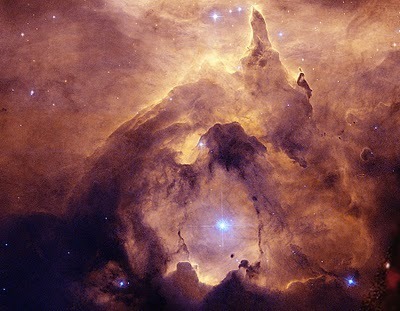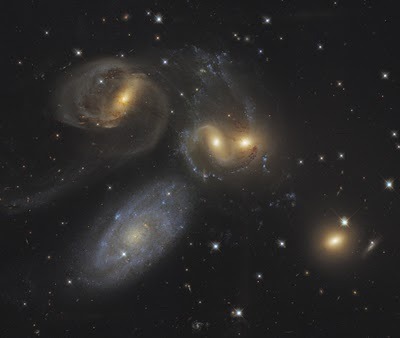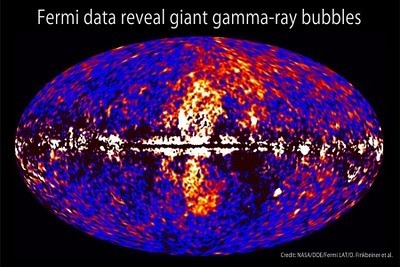Eleanor Arnason's Blog, page 84
November 30, 2010
Grey Weather
I've been in a grey mood since Thanksgiving -- not sure why. The weather has been on the edge of freezing, producing mixed rain and wet snow. This morning it is snow.
Part of the problem, I think, was reading a book on China and world capitalism. The last chapter dealt with capitalism and global warming, arguing -- convincingly, I think -- that capitalism is not able to deal effectively with global warming. A system based on short term profit and endless growth cannot make the changes necessary to reduce greenhouse gases in the brief time we have before things get seriously awful. The book quoted James Lovelock, who predicts that by the end of this century most land will be desert or scrub land, the oceans will be mostly dead, and the planet's human population will be down to one billion people. A little grim, but far better than James Hansen's worst case scenario, which is a run-away greenhouse effect, ending with a planet like Venus, 800 degrees F on the surface.
So, that is one cause of a grey mood, not improved by the next world climate meeting, which has just begun in Cancun. Everyone is talking about reasonable expectations and modest changes -- while methane bubbles out of the melting permafrost in Siberia and Canada.
Part of the problem, I think, was reading a book on China and world capitalism. The last chapter dealt with capitalism and global warming, arguing -- convincingly, I think -- that capitalism is not able to deal effectively with global warming. A system based on short term profit and endless growth cannot make the changes necessary to reduce greenhouse gases in the brief time we have before things get seriously awful. The book quoted James Lovelock, who predicts that by the end of this century most land will be desert or scrub land, the oceans will be mostly dead, and the planet's human population will be down to one billion people. A little grim, but far better than James Hansen's worst case scenario, which is a run-away greenhouse effect, ending with a planet like Venus, 800 degrees F on the surface.
So, that is one cause of a grey mood, not improved by the next world climate meeting, which has just begun in Cancun. Everyone is talking about reasonable expectations and modest changes -- while methane bubbles out of the melting permafrost in Siberia and Canada.
Published on November 30, 2010 09:08
November 25, 2010
Photo by Patrick
Published on November 25, 2010 08:16
November 23, 2010
Never Vote for a Finn
A friend of Patrick's ran for mayor in Eveleth, a town up on the Iron Range in northern Minnesota. She lost, and she thinks it was because she's a Finn.
When she was door knocking, people told her they would never vote for a Finn, because the Finns were too radical in the big iron strike in 1916 (or maybe the strike of 1907 -- I'm not sure). As a result, the National Guard was called in, and the miners lost the strike.
I am back thinking about Elizabeth Moon's argument that America requires that people assimilate. But they don't. People of Slavic descent on the Iron Range are still mad at the Finns a hundred years later. I remember that the Icelanders had to fight three wars with the British in order to control their offshore fishing. I also remember that the Danish government pretty much left the Icelanders alone to die of starvation when Iceland was a Danish colony.
I don't spend a lot of time being mad at the Danes. But I do remember the British are no friends of Iceland. Does this matter to me? Yes.
I think people grossly underestimate the extent to which Americans are loyal to ethnic groups and local regions.
The middle class is less ethnic than the working class; and the upper middle class and the rich know no loyalty to anything except their own class. So I think pundits and politicians underestimate local loyalties.
What does this mean. It may mean that the country is more fragile than most people realtize and could fall apart.
When she was door knocking, people told her they would never vote for a Finn, because the Finns were too radical in the big iron strike in 1916 (or maybe the strike of 1907 -- I'm not sure). As a result, the National Guard was called in, and the miners lost the strike.
I am back thinking about Elizabeth Moon's argument that America requires that people assimilate. But they don't. People of Slavic descent on the Iron Range are still mad at the Finns a hundred years later. I remember that the Icelanders had to fight three wars with the British in order to control their offshore fishing. I also remember that the Danish government pretty much left the Icelanders alone to die of starvation when Iceland was a Danish colony.
I don't spend a lot of time being mad at the Danes. But I do remember the British are no friends of Iceland. Does this matter to me? Yes.
I think people grossly underestimate the extent to which Americans are loyal to ethnic groups and local regions.
The middle class is less ethnic than the working class; and the upper middle class and the rich know no loyalty to anything except their own class. So I think pundits and politicians underestimate local loyalties.
What does this mean. It may mean that the country is more fragile than most people realtize and could fall apart.
Published on November 23, 2010 10:24
November 22, 2010
Paul Krugman - There Will Be Blood
From the most recent Paul Krugman column:

So here's what the very serious Mr. Simpson said on Friday: "I can't wait for the blood bath in April. ... When debt limit time comes, they're going to look around and say, 'What in the hell do we do now? We've got guys who will not approve the debt limit extension unless we give 'em a piece of meat, real meat,' " meaning spending cuts. "And boy, the blood bath will be extraordinary," he continued.
Think of Mr. Simpson's blood lust as one more piece of evidence that our nation is in much worse shape, much closer to a political breakdown, than most people realize...
Mr. Obama is still talking about bipartisan outreach, and maybe if he caves in sufficiently he can avoid a federal shutdown this spring. But any respite would be only temporary; again, the G.O.P. is just not interested in helping a Democrat govern.
My sense is that most Americans still don't understand this reality. They still imagine that when push comes to shove, our politicians will come together to do what's necessary. But that was another country.
It's hard to see how this situation is resolved without a major crisis of some kind. Mr. Simpson may or may not get the blood bath he craves this April, but there will be blood sooner or later. And we can only hope that the nation that emerges from that blood bath is still one we recognize.
Published on November 22, 2010 11:22
A Comment on the Above
I think what we are looking at right now is shock capitalism. The idea is from a book by Naomi Klein, The Shock Doctrine: the Rise of Disaster Capitalism.
From Wikipedia:
Per Wikipedia, Klein argues that the invasion and destruction of Iraq is the biggest attempt at shock capitalism thus far. Out of the disaster is supposed to rise an oil exporting economy friendly to Western oil companies.
The shock doctrine -- or something like it -- was used in Russia after the collapse of the Soviet Union, either by accident or intentionally. The country's economy was ripped apart; the social safety net vanished; and the citizens were impoverished. The average life span dropped, something not seen in any other country. In the end, Russia had a capitalist economy. The accumulated wealth of the Russian People, formerly controlled by the state in the name of the people, was in private hands, many of those hands belonging to former Communist Party hacks or former gangsters. As I remember, the Russian government was being advised by Harvard economists when all this went down.
Something similar appears to be happening here. The right is attacking the social safety net, what remains of it. The idea is (it seems to me) to reset the rules of society, creating a far more predatory America, where most people are poor and frightened.
The government as it exists now is not likely to survive. As Krugman says above, it isn't working at the moment; and shock capitalism is going to require a strong central power to control the population. That suggests a dictatorship, though there are other options. A crippled form of the Republic may continue. The country may simply break down and break apart; or the population may get angry enough to challenge the rich and remake society.
I may be wrong. I am not in an optimistic mood right now. It's possible we can limp along with an economy and government that don't really work any more.
From Wikipedia:
The book argues that the free market policies of Nobel Laureate Milton Friedman have risen to prominence in some countries because they were pushed through while the citizens were reacting to disasters or upheavals. It is implied that some man-made crises, such as the Falklands war, may have been created with the intention of being able to push through these unpopular reforms in their wake.
Per Wikipedia, Klein argues that the invasion and destruction of Iraq is the biggest attempt at shock capitalism thus far. Out of the disaster is supposed to rise an oil exporting economy friendly to Western oil companies.
The shock doctrine -- or something like it -- was used in Russia after the collapse of the Soviet Union, either by accident or intentionally. The country's economy was ripped apart; the social safety net vanished; and the citizens were impoverished. The average life span dropped, something not seen in any other country. In the end, Russia had a capitalist economy. The accumulated wealth of the Russian People, formerly controlled by the state in the name of the people, was in private hands, many of those hands belonging to former Communist Party hacks or former gangsters. As I remember, the Russian government was being advised by Harvard economists when all this went down.
Something similar appears to be happening here. The right is attacking the social safety net, what remains of it. The idea is (it seems to me) to reset the rules of society, creating a far more predatory America, where most people are poor and frightened.
The government as it exists now is not likely to survive. As Krugman says above, it isn't working at the moment; and shock capitalism is going to require a strong central power to control the population. That suggests a dictatorship, though there are other options. A crippled form of the Republic may continue. The country may simply break down and break apart; or the population may get angry enough to challenge the rich and remake society.
I may be wrong. I am not in an optimistic mood right now. It's possible we can limp along with an economy and government that don't really work any more.
Published on November 22, 2010 10:52
November 21, 2010
From NASA, ESA and IAA (Spain)

For reasons unknown, NGC 6357 is forming some of the most massive stars ever discovered. One such massive star, near the center of NGC 6357, is framed above carving out its own interstellar castle with its energetic light from surrounding gas and dust. In the greater nebula, the intricate patterns are caused by complex interactions between interstellar winds, radiation pressures, magnetic fields, and gravity. The overall glow of the nebula results from the emission of light from ionized hydrogen gas. Near the more obvious Cat's Paw nebula, NGC 6357 houses the open star cluster Pismis 24, home to many of these tremendously bright and blue stars. The central part of NGC 6357 shown spans about 10 light years and lies about 8,000 light years away toward the constellation of the Scorpion.
Published on November 21, 2010 06:54
November 20, 2010
NASA Image of the Day

With NASA commentary...
The first identified compact galaxy group, Stephan's Quintet is featured in this eye-catching image constructed with data drawn from the extensive Hubble Legacy Archive. About 300 million light-years away, only four galaxies of the group are actually locked in a cosmic dance of repeated close encounters. The odd man out is easy to spot, though. The four interacting galaxies (NGC 7319, 7318A, 7318B, and 7317) have an overall yellowish cast and tend to have distorted loops and tails, grown under the influence of disruptive gravitational tides. But the larger bluish galaxy, NGC 7320, is much closer than the others. Just 40 million light-years distant, it isn't part of the interacting group. In fact, individual stars in the foreground galaxy can be seen in the sharp Hubble view, hinting that it is much closer than the others. Stephan's Quintet lies within the boundaries of the high flying constellation Pegasus.
Published on November 20, 2010 05:04
November 13, 2010
Snow
I was supposed a host an anime viewing today. But there's a winter storm warning, and snow is falling thickly outside our windows. So the gathering is off.
I think I will go out to a coffee shop later. There is one walking distance. I want to work on my hwarhath Sherlock Holmes story and buy more coffee beans. We are almost out.
The writing group liked my most recent Lydia Duluth story, which is # 8 if I count the short novel. A number of small fixes are needed, things I didn't explain adequately. And Patrick needs to read the story, since it's about homelessness.
I am going to have to read through all the Lydia Duluth stories to make sure they are are more less consistant and to get a sense of where they are going. Then the two most recent can go out, and I can get back to the hwarhath novel.
I think I will go out to a coffee shop later. There is one walking distance. I want to work on my hwarhath Sherlock Holmes story and buy more coffee beans. We are almost out.
The writing group liked my most recent Lydia Duluth story, which is # 8 if I count the short novel. A number of small fixes are needed, things I didn't explain adequately. And Patrick needs to read the story, since it's about homelessness.
I am going to have to read through all the Lydia Duluth stories to make sure they are are more less consistant and to get a sense of where they are going. Then the two most recent can go out, and I can get back to the hwarhath novel.
Published on November 13, 2010 09:13
November 10, 2010
NASA Photo of the Day

Did you know that our Milky Way Galaxy has huge bubbles emitting gamma rays from the direction of the galactic center? Neither did anybody. As the data from the Earth-orbiting Fermi satellite began acuminating over the past two years, however, a large and unusual feature toward our Galaxy's center became increasingly evident. The two bubbles are visible together as the red and white spotted oval surrounding the center of the above all sky image, released yesterday. The plane of our Galaxy runs horizontally across the image center. Assuming the bubbles emanate from our Galaxy's center, the scale of the bubbles is huge, rivaling the entire Galaxy in size, and spanning about 50,000 light years from top to bottom. Earlier indications of the bubbles has been found on existing all sky maps in the radio, microwave, and X-ray. The cause of the bubbles is presently unknown, but will likely be researched for years to come.
Published on November 10, 2010 05:26
November 7, 2010
Writing
There is something demented about the way I write. I have three stories in the last stages of revision and a partly finished story, which I need to get back to; and I have the sequel to Ring of Swords, which I really, really need to finish revising.
So I have just started two new stories.
I think I definitely belong to the class of writers who like the first draft and don't like revising.
So I have just started two new stories.
I think I definitely belong to the class of writers who like the first draft and don't like revising.
Published on November 07, 2010 09:48
Eleanor Arnason's Blog
- Eleanor Arnason's profile
- 73 followers
Eleanor Arnason isn't a Goodreads Author
(yet),
but they
do have a blog,
so here are some recent posts imported from
their feed.




